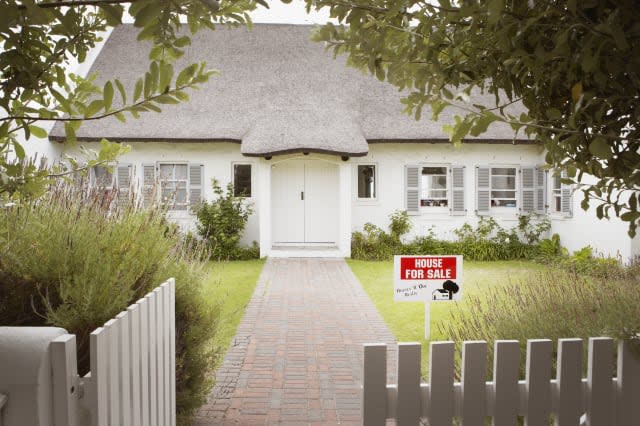The best way to profit from Europe's burgeoning housing bubbles

Don't tell anyone I told you this, but apparently loose monetary policy is in danger of blowing up house price bubbles in several countries. I know, I know – sounds far-fetched. But bear with me.
Moody's Analytics reckons that the European Central Bank's money-printing plans have "caused the risk of house price bubbles" to "resurface", reports the FT.
Who'd have thought that lowering the cost of borrowing to negligible levels would have caused the prices of assets that are bought with borrowed money to go up?
OK – that's enough of the sarkiness. Let's look at how you can profit from this.
How low interest rates drive up house prices
Low interest rates drive up house prices in two main ways. Firstly, when rates are low, it costs less to borrow money. Assuming that it's possible to get a loan (low interest rates typically go with loose credit conditions, but that's not always the case), then you can borrow more for any given monthly repayment.
When it comes to mortgages, most people have a monthly amount they think they can afford. That's usually the thing they'll look at when they're considering how much they can pay for a house.
And given that most people stretch themselves to their maximum when they buy a property, and that the decision to buy is rarely based on finance alone, it's probably reasonable to imagine – though I don't have any studies to back this up – that the property market is less efficient and less rational than most financial markets (and that's saying something).
Secondly, low rates make anything that yields an income more attractive. If a property will yield you a 5% rental income, and a government bond will give you 1%, the property looks a lot more attractive. Particularly if it looks like property prices will keep rising into the bargain. Plus, it's a 'solid' asset. People like that sense of owning a 'thing' that they can hold and look at.
So, in short, it's no surprise that the European Central Bank's decision to print €60bn a month to buy government bonds might help to drive up house prices across Europe. It means a lot more money chasing assets across the zone.
In a report for Moody's Analytics, Anna Zabrodzka says that Norway, Germany and the UK are looking particularly frothy. House price rises in the big cities are mainly to blame – London, Oslo and Munich look "increasingly overvalued."
Norway is the worst offender. Prices are up by more than 30% since 2010, according to Moody's. But the country can't hike interest rates because it's also being hammered by the crash in oil prices.
Meanwhile, in Britain, tighter mortgage lending rules have been somewhat undermined by the 'Help to Buy' scheme, which forces taxpayers to guarantee a chunk of loans for first-time buyers. (Hard to understand how we can afford to subsidise housebuilders at a time of biting austerity, but there you go).
Moody's points out that, as a result, loan standards in Britain are "still relatively loose" (though it's interesting to look at my colleague Dominic Frisby's stories on this point).
Why Germany is the market to look at
So far, so typical. There are actual or burgeoning housing bubbles across the world, and monetary policy is making it worse. We know that.
Thing is, will monetary policy get tighter any time soon? Maybe a bit in the US and the UK, but Europe is going to be sticking with its quantitative easing (QE) programme for quite some time.
And that's why I'd say that the most interesting opportunity here is in Germany.
Think of it this way: what makes for a good bubble? First, find an asset that was once cheap and hated for a long time. German residential property fits that bill nicely.
It's among the few developed-market nations not to have experienced a massive house-price bubble alongside the US during the 2000s (Japan was another). The German central bank might be wetting itself with worry about a bubble right now, but they're just playing at it. They don't know what a real bubble looks like.
Second, take a liberal dollop of loose monetary policy. The looser, the better. And no country in Europe has looser monetary policy than Germany. The European Central Bank is often accused of pandering to Germany, but that's not really fair. In the early days of the eurozone, interest rates were probably too high for Germany, which was struggling with reunification. But they were probably too low for the likes of Ireland and all the other peripheral 'tiger' economies that eventually collapsed under the weight of imploding housing markets.
Nowadays, interest rates and monetary policy are probably – if anything – still too tight for those peripheral economies. But they are most definitely too loose for Germany.
And that suggests to me that the Germany property bubble could have a long way to go. We've looked at ways to invest in German and eurozone property in MoneyWeek magazine in a recent issue of the magazine.
More on AOL Money:
A third of today's 35-year-olds will be renting in retirement
Growing demand for smaller homes
One way you could profit from property without owning it





